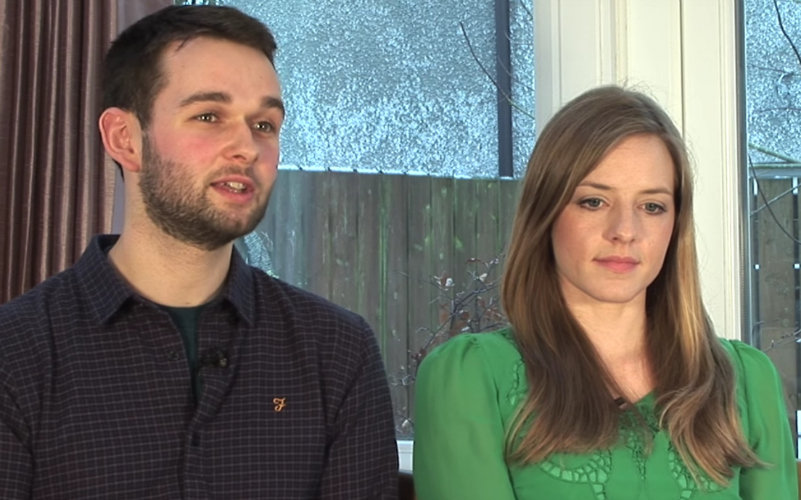Dec. 5, 2016 (BreakPoint) — Okay—stop me if you’ve heard this story before: A Christian couple opens a bakery where, until recently, the only thing they’re known for was the quality of their baked goods. Until one day a gay client demands that they perform a service that would violate their conscience.
After the couple refuses, the would-be customer files a complaint against the bakers. The case winds up in the courts, where the Christian couple loses.
It’s an all-too-familiar story, but this one has a few surprising twists.
First—where it took place: the United Kingdom, specifically, Northern Ireland.
Daniel and Amy McArthur run a bakery in Belfast called “Ashers.” In May, 2014, a representative of a group called “QueerSpace,” which is, as the name suggests, an LGBT advocacy group in Northern Ireland, placed an order for a cake at Ashers.
If the cake had simply been, say, a red velvet cake with cream cheese frosting, the story would have ended there. Ashers would have baked the cake and that would have been that.
But, as you probably guessed, it wasn’t that simple. The would-be customer wanted the McArthurs to put a picture of Bert and Ernie from Sesame Street, along with the words “Support Gay Marriage” on the top.
After the McArthurs declined to bake the cake, the would-be customer filed suit against them.
After losing in the lower court and being fined the equivalent of $600, they appealed to Northern Ireland’s Supreme Court, which upheld the legal conclusions of the lower court.
Writing for the court, the Chief Justice rejected the bakery’s contention that fulfilling the request was tantamount to approving the message. “The fact,” he wrote, “that a baker provides a cake for a particular team or portrays witches on a Halloween cake does not indicate any support for either.”
Going one step further, he continued “In the present case the appellants might elect not to provide a service that involves any religious or political message. What they may not do is provide a service that only reflects their own political or religious message in relation to sexual orientation.”
Click “like” if you want to defend true marriage.
Wow! In other words, when freedom of speech and conscience collides with issues concerning sexual orientation, freedom of speech and conscience must give way.
This prompted the other twist: The British media came to the defense of the Christian bakers. The center-right Telegraph asked “How have we got to the point where a law-abiding, God-fearing family running a bakery in Northern Ireland can find themselves in a lengthy court battle over a refusal to ice a political message on to a £39 sponge cake?,” adding “Why is the law not protecting the rights of this Christian couple?”
And meanwhile from the left, the Guardian said that the decision “cannot be welcomed by anyone who cares about free speech.” While it argued against conscience-driven blanket exemption to discrimination laws, it added “that is not the only way in which this question can be examined.”
According to the Guardian, the McArthurs “were being asked to make a statement in favour of gay marriage with which they profoundly disagreed. And here they ought to have had the right to disagree.” In the Guardian’s opinion, compelling “someone to express—even in sugar paste—an opinion they rejected with all their hearts” is wrong.
So while the McArthurs may have lost in the courts of law, they seem to be winning in the court of public opinion. And that’s a good sign–given that many cultural trends that start across the pond wind up on these shores. Who knows, perhaps someday soon the British press’s concern for freedom of religion and freedom of speech might catch on with our own media.
Reprinted with permission from Break Point.

